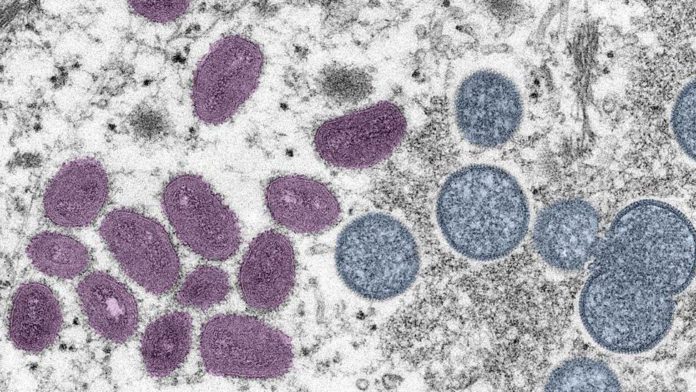The White House is planning to ship thousands of monkeypox vaccines to states as part of a growing federal campaign to halt the outbreak.
Officials say they are also working to increase testing and have expanded the group of people who are being advised to get jabbed.
The virus, normally only found in Africa, has been sweeping through the US and Europe with surprising speed.
There have been 306 cases, and no deaths, recorded in the US so far.
US health officials warned in a media briefing on Tuesday that the true number of cases is probably higher.
Globally, there have been over 4,700 cases reported across 49 countries since last month.
READ ALSO:
The latest directive from the federal government calls for jabs for anyone who believes that they have been exposed to monkeypox.
Previously, the vaccines were only offered to people who have had a known exposure.
The pool of people now advised for vaccination includes men who have sex with men, and who have recently had sex or been intimate at gatherings in cities were cases have been identified.
Most cases so far in the US have been in men who have sex with men, but officials emphasise that anyone can catch it. It comes during Pride month, which celebrates LGBT culture – often with large public gatherings.
The Department of Health and Human Services will begin distributing 56,000 doses of the two-dose Jynneos vaccine, which is manufactured by a Danish company called Bavarian Nordic, officials said.
However, the US only has 64,000 doses of Jynneos in its stockpile, and has placed an order for more. Officials say they plan to make 1.25m doses available throughout the summer and fall.
An older smallpox vaccine, called ACAM2000, can also be used if Jynneos supplies run out, but officials say it carries a greater risk of complications.
Jynneos is approved by the Food and Drug Administration and can stop infection after a person is already exposed to the virus.
Earlier this week, New York and Washington began distributing vaccines but quickly ran out of supplies.
Monkeypox is not spread easily between people but it can be passed on through close contact with skin, clothes, bedding and towels. Infections normally clear up on their own between 14 and 21 days.

